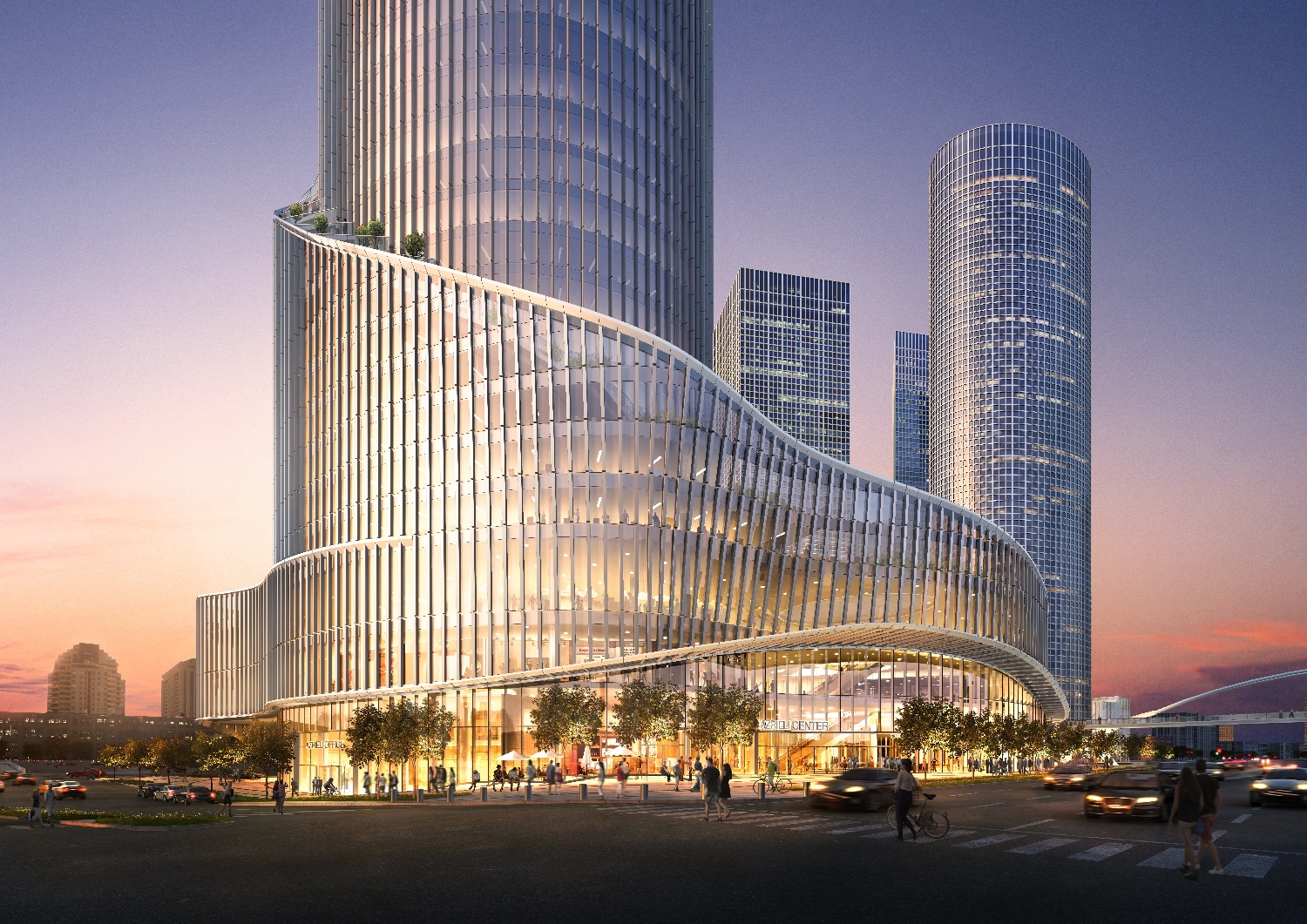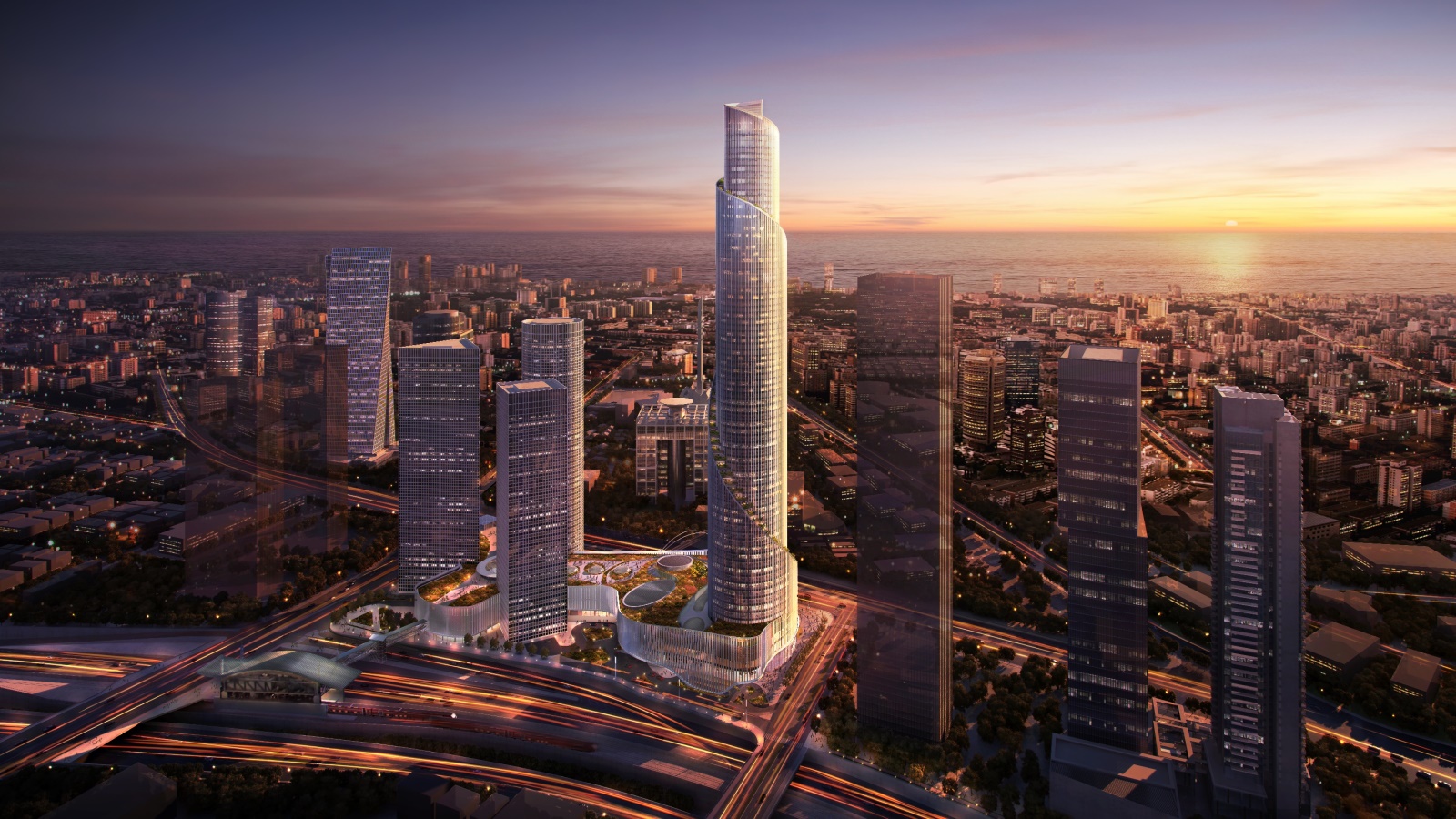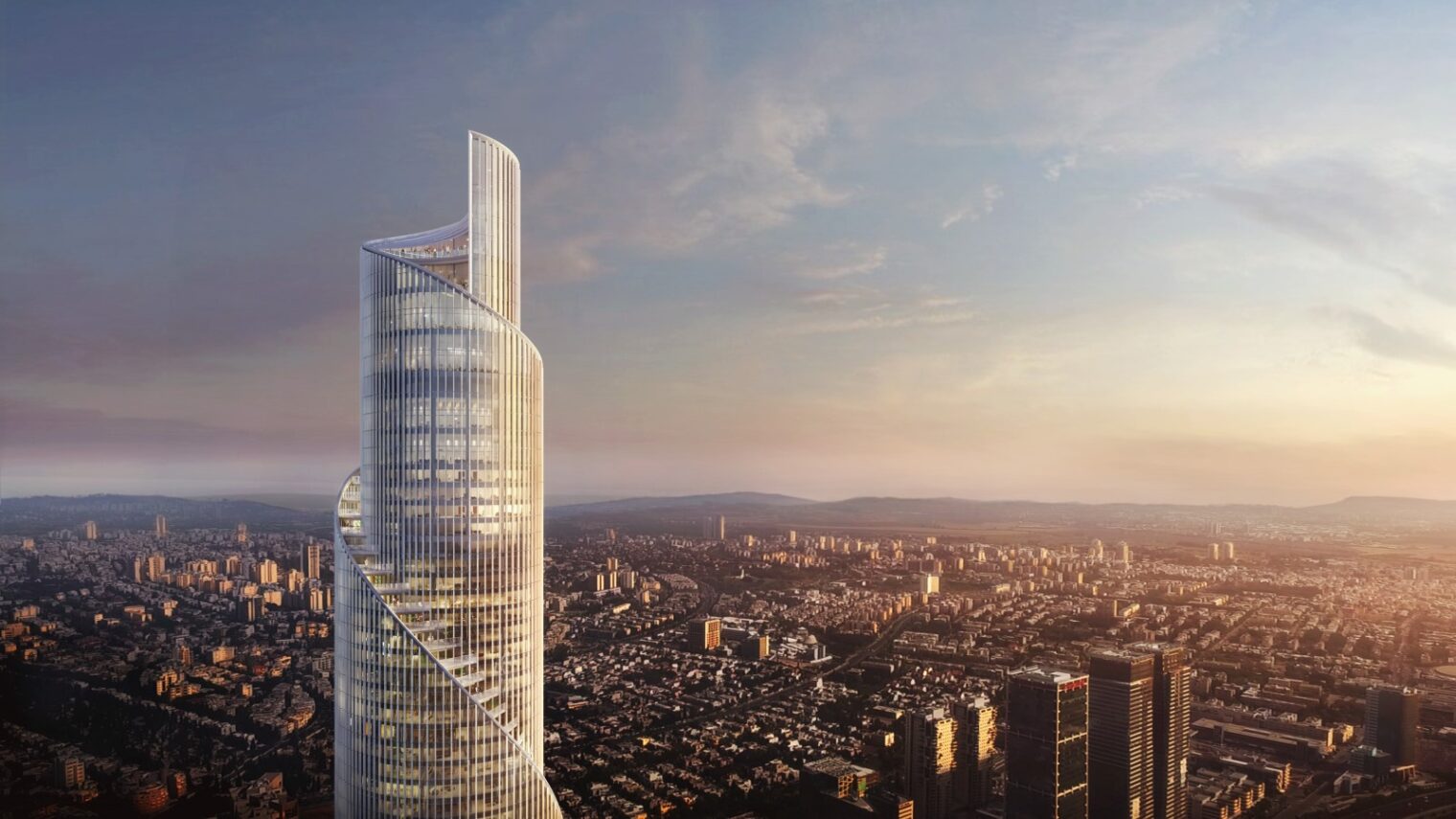Tel Aviv will soon have a very substantial addition to its skyline – a fourth Azrieli Center tower, this time in the shape of a spiral, to join the city’s landmark trio of buildings. Once completed, it is set to be the tallest tower in Israel.
The 91-story spiral tower will be almost 1,150 feet (350 meters) tall and will include commercial, office and residential areas as well as a hotel. The top floors are to house conference rooms, spaces for meetings and entertainment and a 360-degree lookout. A garden and chef restaurant will be on the roof.

Digging and piling work is already underway, and construction is expected to be completed within six or seven years. The total cost of the project is estimated at ₪2.5 billion (over $650 million).
“The architecture of the spiral tower reflects the boldness and creativity of the Azrieli Group, which redefines Tel Aviv’s skyline with each new project,” Azrieli Group Chairwoman Dana Azrieli said at the project’s unveiling on Wednesday.
“The exceptional financial investment in the project is a testament to our great confidence in the Israeli economy and its growth, and continues the strategy that has led us in building the country for over three decades,” she said.

The spiral tower was designed by the American Kohn Pedersen Fox architecture firm, which has designed five out of the 10 tallest skyscrapers in the world. Israeli firm Moshe Tzur Architects & Town Planners is working with KDF on the project.
The tower’s spiral shape, according to its planners, draws inspiration from the curves of a snail shell. Biblical scrolls were another source of inspiration. Once completed, the new building will unfurl dramatically above the existing circular, triangular and square-shaped Azrieli Center buildings. Those three 50-story buildings, which include a shopping mall, commercial and office space, were completed between 1998 and 2007.

The new tower will expand the Azrieli Center footprint by almost three acres, for a total area of more than 12 acres. The complex will constitute a major transportation hub, connecting the existing Hashalom railway station with the light-rail network now under construction in the Tel Aviv district, as well as the many bus lines.
Some 100,000 people are expected to pass through the expanded center every day.













